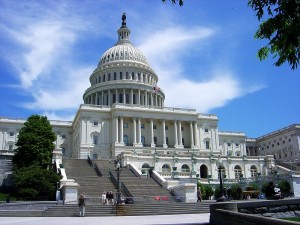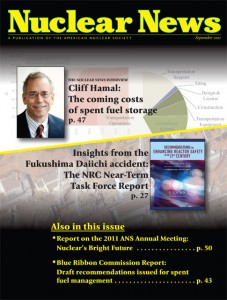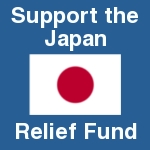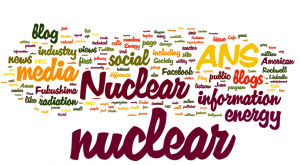A message from Curtiss-Wright
High-Temperature neutron flux detectors for Generation IV reactors and SMRs
-3 2x1.jpg)
A message from Curtiss-Wright
High-Temperature neutron flux detectors for Generation IV reactors and SMRs
 For a while in the early 1990s, my work at Nuclear News magazine included coverage of Washington, D.C. Eight or ten times a year, I'd spend two or three days in our nation's capital, attending congressional hearings, interviewing bigwigs, pestering agencies to give me copies of arcane documents, and frantically taking notes in public meetings at the headquarters of the Nuclear Regulatory Commission.
For a while in the early 1990s, my work at Nuclear News magazine included coverage of Washington, D.C. Eight or ten times a year, I'd spend two or three days in our nation's capital, attending congressional hearings, interviewing bigwigs, pestering agencies to give me copies of arcane documents, and frantically taking notes in public meetings at the headquarters of the Nuclear Regulatory Commission.
A collaborative effort between the American Nuclear Society and the U.S. Nuclear Regulatory Commission resulted in a successful 90-minute webinar on nuclear safety issues on October 4.
The discovery of fire a million years ago must have been terrifying to cave men and women. Since that time, many people have died and much damage to the earth has occurred as a result of chemical energy released through fire. Nevertheless, that chemical energy found its place in the world, providing great benefits, and most people take it for granted.
On Friday, September 30, the Japanese government cancelled evacuation advisories for areas located more than 20 km (12 miles) from the Fukushima Daiichi nuclear power station. The evacuation advisories initially affected 59,000 people, but 30,000 had already returned because radiation measurements showed them that there was no longer any reason to stay away from their homes. That indicates that irrational fear has begun to fade away.
 The September issue of Nuclear News is available in hard copy and electronically for American Nuclear Society members (must enter ANS user name and password in Member Center). The issue contains a variety of features, including:
The September issue of Nuclear News is available in hard copy and electronically for American Nuclear Society members (must enter ANS user name and password in Member Center). The issue contains a variety of features, including:
The hunt is on in Vietnam, Turkey, and elsewhere
Vermont Yankee's opponents continue their campaign
Japanese and U.S. counterparts face major challenges over Fukishima, but for different reasons
A report by a Nuclear Regulatory Commission staff task force calls for sweeping regulatory change, but also acknowledges that information about the Fukushima accident is unavailable, unreliable, or ambiguous. What should be the response in the United States to the events in Japan?
Domestic liability laws and international issues may put limits on the country's ambitious plans to build new reactors
 American Nuclear Society members and others, take a bow. Your contributions to the Japan Relief Fund have exceeded the $155,000 level. That's something to be proud of. There is still a need, however, for you to keep making donations to help our friends and colleagues, and their families, at the Fukushima Daiichi, Fukushima Daini, and Onagawa nuclear plants, all located on the damaged east coast of Japan.
American Nuclear Society members and others, take a bow. Your contributions to the Japan Relief Fund have exceeded the $155,000 level. That's something to be proud of. There is still a need, however, for you to keep making donations to help our friends and colleagues, and their families, at the Fukushima Daiichi, Fukushima Daini, and Onagawa nuclear plants, all located on the damaged east coast of Japan.
Two people with long experience working with the nuclear industry-one in Japan and one in the United States-share some "hall talk" with ANS Nuclear Cafe about Fukushima
As President-Elect of the American Nuclear Society, I welcome my fellow ANS members and non-members to the 2011 June conference!
Perhaps one of the more enduring cartoons that relates to the quality of information on the Internet is the one that states, "On the Internet no one knows you are a dog." It shows a drawing of two dogs sitting in front of a computer terminal. Unfortunately, the cartoon is copyrighted material so it can't be reposted here, but you can see it here along with many variations. The point of the cartoon is that words and images on the screen can come from anywhere and anyone. Clearing up misconceptions and outright falsehoods about nuclear energy since the March 11 Fukushima earthquake and tsunami is getting more attention these days. Problems range from not mainstream journalists not understanding the technical issues to people who are publicity crazed fear mongers out to get their face on a video.
Clearing up misconceptions and outright falsehoods about nuclear energy since the March 11 Fukushima earthquake and tsunami is getting more attention these days. Problems range from not mainstream journalists not understanding the technical issues to people who are publicity crazed fear mongers out to get their face on a video.
In the weeks and months following the events at the Fukushima plant in Japan, the American Nuclear Society's Social Media listserv has become a headquarters for sharing information, ideas, and strategies about how to combat misinformation about nuclear energy. This active forum is facilitated by Dan Yurman, who through this effort has opened a new door for collaboration between communicators from all corners of the nuclear community. Many on this list have voiced concerns that the industry response to Fukushima has not yet managed to transition from defensive to offensive, in terms of public outreach.
 The basic thesis of a post I wrote in January was that the Chernobyl accident was far enough in the past that the younger generation in the nuclear industry did not have the first-hand memories of the experience, and therefore lacked some of the emotional understanding of the event. I suggested that there should be a conscious effort to pass on how Chernobyl and Three Mile Island affected the culture of the industry.
The basic thesis of a post I wrote in January was that the Chernobyl accident was far enough in the past that the younger generation in the nuclear industry did not have the first-hand memories of the experience, and therefore lacked some of the emotional understanding of the event. I suggested that there should be a conscious effort to pass on how Chernobyl and Three Mile Island affected the culture of the industry.
Russia and Turkey say not so fast